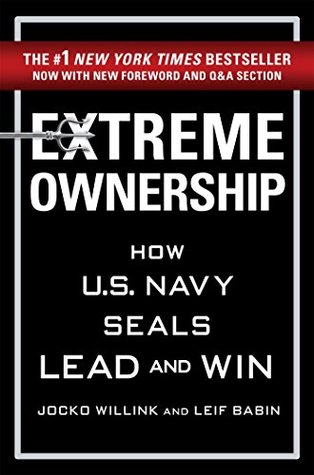More on this book
Community
Kindle Notes & Highlights
Once people stop making excuses, stop blaming others, and take ownership of everything in their lives, they are compelled to take action to solve their problems.
Leaders must own everything in their world. There is no one else to blame.
On any team, in any organization, all responsibility for success and failure rests with the leader. The leader must own everything in his or her world. There is no one else to blame. The leader must acknowledge mistakes and admit failures, take ownership of them, and develop a plan to win.
If an individual on the team is not performing at the level required for the team to succeed, the leader must train and mentor that underperformer. But if the underperformer continually fails to meet standards, then a leader who exercises Extreme Ownership must be loyal to the team and the mission above any individual. If underperformers cannot improve, the leader must make the tough call to terminate them and hire others who can get the job done. It is all on the leader.
With Extreme Ownership, you must remove individual ego and personal agenda. It’s all about the mission.
Combat, like anything in life, has inherent layers of complexities. Simplifying as much as possible is crucial to success. When plans and orders are too complicated, people may not understand them. And when things go wrong, and they inevitably do go wrong, complexity compounds issues that can spiral out of control into total disaster.
On the battlefield, countless problems compound in a snowball effect, every challenge complex in its own right, each demanding attention. But a leader must remain calm and make the best decisions possible. To do this, SEAL combat leaders utilize Prioritize and Execute. We verbalize this principle with this direction: “Relax, look around, make a call.” Even the most competent of leaders can be overwhelmed if they try to tackle multiple problems or a number of tasks simultaneously. The team will likely fail at each of those tasks. Instead, leaders must determine the highest priority task and
...more
How do you recover from a mistake? If you make a mistake, own it. The worst thing you can do if you make a mistake is try to avoid taking blame for it. That’s the worst thing you can do. Think about the bosses you have had that made a mistake. If he said, “No, it wasn’t my fault,” you’d lose respect for him. So you can’t do that. You’ve got to take ownership of it.


